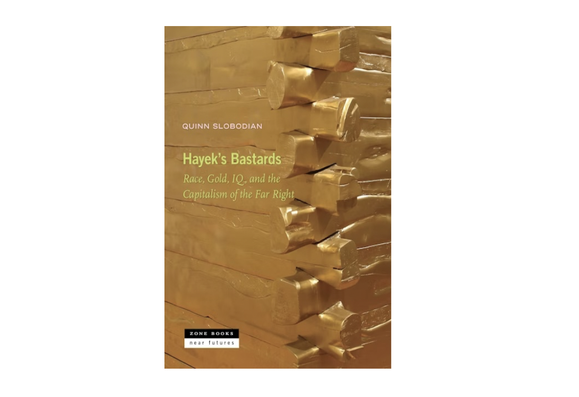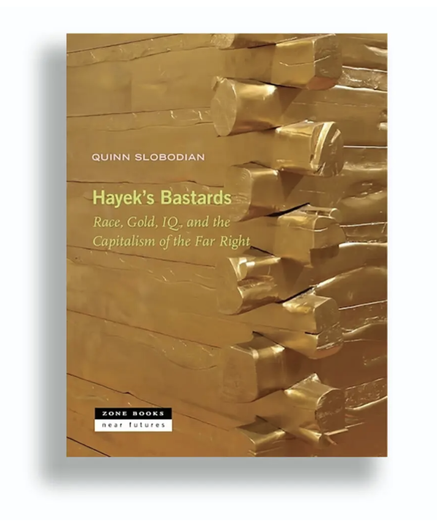#neoliberalism understands why single issue voting is a problem, until they want them to vote on a single issue. Then when they don’t everything everywhere is all their fault.
Recent searches
Search options
#neoliberalism
Oh look! Youtube somehow knew I was complaining about the neoliberal immigration slavery scheme. (I assume it’s because I was using talk to text here, and my phone told you too I was talking about this. Or it could be pure coincidence.)
#immigration #HumanTrafficking #H2A
#CapitalismKills #slavery #neoliberalism #farmers
I wish there were more speakers from the left like her.
The western left has gotten so academic and comfortable, it’s no wonder the far right could swoop in and pretend to be working classes’ saviour.
https://www.instagram.com/reel/DHItA8TorVp/
#left #history #politics #neoliberalism

This site is both a personal journal and a platform for wider conversations. It reflects years of deep engagement with grassroots media, #4opens tech, and the ongoing mess created by #neoliberalism and consumer culture.
It’s a woven tapestry of reflections, critiques, and experiments—rooted in activism, media, and the social impact of technology. It’s not polished, and it’s not meant to be. Like the world it reflects, it’s messy, alive, and full of contradictions.
What you take from it is up to you. What are your intersections of tech, society, and activism? What thoughts do you want to compost?
I have spent a lot of time unpacking neoliberal discourses in micro finance (2nd MA) and food production & procurement (PhD).
It is amazing how persistent these discourses are, STILL, in my own head. Being "productive" & valuing participation in the capitalist economy. I really struggle with non productive activities.
Minecraft has become a practice of embracing non productivity. One block at a time, resisting capitalist values.
"Desperate for a new intellectual underpinning, neoliberals and libertarians sought refuge in the work of economist Friedrich Hayek, who famously argued in his 1944 polemic The Road to Serfdom that government intervention in markets is antithetical to individual freedom. But Murray, Rothbard, Hoppe, and others fatally twisted Hayek’s message, claims Slobodian, and took it so far as to argue that only Western countries are intellectually and culturally primed for capitalism.
The politics of this cohort, which he dubs the “new fusionists,” was rooted in “three hards,” argues Slobodian: “Hardwired human nature, hard borders, and hard money.” They forged sordid alliances with biologists, evolutionary psychologists, and ethnonationalists, spouting pseudoscience about the link between race and IQ, a topic famously repopularized in the 1994 best-seller The Bell Curve, coauthored by Murray and psychologist Richard J. Herrnstein. They railed against lax immigration policies on the premise that they led to cultural decay. But perhaps most strangely, they ballyhooed the value of gold as a backstop against a looming economic cataclysm caused by incompetency in Washington. (Talk about apropos.)
In an interview with Vanity Fair, which has been edited for length and clarity, Slobodian analyzes Donald Trump’s radical agenda through this new prism of neoliberalism. He also unpacks the distressing parallels between goldbugs and crypto bros, and details why the tech set has suddenly taken up with the MAGA right. Silicon Valley’s “willingness to stand shoulder-to-shoulder with Donald Trump,” he says, is indicative “of the embrace of an ideology that pretty frankly ranks human capacity along the spectrum of intelligence and IQ.”"
https://www.vanityfair.com/news/story/donald-trump-silicon-valley-neoliberal-roots

Mutant Capitalism
How the dystopian visions of the nativist right are in keeping with a long tradition of neoliberal ideology.
Excerpt adapted from Hayek’s Bastards: Race, Gold, IQ, and the Capitalism of the Far Right by Quinn Slobodian

Beyond national liberation
A new book issues both an indictment of South Africa’s failed transition and a call to rebuild the left through climate justice, solidarity economies, and radical humanism.
https://africasacountry.com/2025/04/beyond-national-liberation
"The decline was the outcome of a class project overseen by the ANC, which he terms an 'Afro-neoliberal mode of transformation.'"

@RichardJMurphy explains here that Labour 's Rachel Reeves could save unnecessary interest payments of £20 billion per year, which makes Labour's choice to cut funding for the elderly and disabled people even more blatantly a choice for necropolitics, IMO.
https://m.youtube.com/watch?v=XITKNiosNwk
More on the necropolitical aspect: Work or Die: Labour's War on Disabled People, by John the Duncan
https://m.youtube.com/watch?v=Rk9WgnIzyfo
(review) A new #book by the historian @quinnslobodian.com examines right-wing figures who have positioned themselves as populist critics of #neoliberalism while weaponizing some of its founders’ ideas, chart Jennifer Szalai @nytimes.com
https://www.nytimes.com/2025/04/09/books/review/hayeks-bastards-quinn-slobodian.html
Over 1000 lawyers, in 42 states, trained to do #ProBono work for federal employees being attacked by #DOGE. “We are still operating as though there is a #RuleOfLaw”
This regime change without a roadmap is the end of #neoliberalism, and good riddances to that Yes, we are tearing down the old neoliberal #deathcult consensus https://hamishcampbell.com/yes-we-are-tearing-down-the-old-neoliberal-deathcult-consensus/
"I think that my assumption was a triumphalism and a sense of victory after the fall of the Soviet Union. But the fact that the week of the Berlin Wall falling, they were already talking about new enemies —enemies that had gone underground in certain ways or transformed in ways that were elusive — was the beginning of the rabbit hole. Because once you accept the idea that Marxism and socialism have survived and yet have changed their face, then anything can be Marxism and socialism.
I think this is how we can understand the fixation of the right wing on things like what they call “cultural Marxism” or “gender ideology” as essentially the new enemy of humanity. Because the adversary continuously changes shape, it makes them open to endless reinterpretation. There is a paranoid quality to the term. And the paranoia doesn’t really have any bounds, as I show in the book.
So I think the narrative arc comes from a feeling on the part of the libertarians, and often the racist libertarians, that they can contain their enemy in new ways by pinning it down on hierarchies of intelligence or deploying the latest findings from genetics. But by the end of the book, with a chapter on “gold bugs” and the far-right obsession with gold, there’s almost a sense of desperation or surrender to the inevitable, a failure to contain their enemies and the idea of an impending collapse and inevitable apocalypse.
(...)
What I recognize is a sort of desperation and a kind of ungoverned willingness to reach for radical remedies in a time of great peril. And as I described in the last chapter, often the rhetorical technique of the gold bug is to predict a coming apocalypse and then immediately sell you the only means there is to protect you from the worst.
I think there’s that accelerationism visible right now on the far right, certainly in the United States."
https://jacobin.com/2025/04/race-science-neoliberalism-hayek-slobodian/
He speaks from the heart!
IMO, #neoliberalism and #libertarianism were justified for a maximum of about 5-10 years in the era of #Kohl, #Thatcher and #Reagan, when e.g. the so called “Deutschland AG” had to be broken up.
Instead of dying afterwards, the ideology mutated into a delusion, enslaved people, created monopolies, plundered natural resources, murdered, putsched and invaded other countries “when needed”.
#Trump and his #fascism are just the visible fruiting body of this deadly fungus.
"The growing threat of the right must be addressed. But this must not come at the expense of dissolving socialist politics into coalitions whose political and economic strategies – of neoliberalism and global war-making in Eastern Europe, the Middle East, and across Asia – have been so directly responsible for the growth of hard-right forces in the first place. Indeed, in this conjuncture, it is more important than ever that the socialist left do everything possible to increase its visibility, create an organizational presence, and advance, as strongly as possible, an alternative political vision. This is not only necessary to preserve the democratic gains of the past but also to address the mounting demands of the ‘terrifying’ near future that Trump, NATO, and climate change are unrelentingly pushing us towards. If the market-based ‘solutions’ to the ecological crisis offered by the neoliberal center are inadequate, we must explicitly insist that only a fundamental challenge to capital, and a deep reorganization of the economy through a radical democracy and the implementation of a democratic planning regime, has any chance of leading to a sustainable future. That we are running out of time does not mean that centrist compromises or ultra-left posturing suddenly become more effective."
"Transgression and disruption as aesthetic ideology, from Marinetti to experimental art, counterculture, neoliberalism, and Trump" is an article originally written in Dutch by me and Nienke Terpsma. It was commissioned for, and published in, the new issue (2/2005) of the art magazine Metropolis M which is covering the 60th anniversary of the Dutch Provo movement.
The text reflects on how futurism, accelerationism, and chaos aesthetics have become part of neoliberal, right-wing libertarian, and contemporary fascist politics, but how seeming antidotes like community and care can also be hijacked.
We've made a slightly expanded and revised English version of the text available here:
http://cramer.pleintekst.nl/essays/transgression_and_disruption_as_aesthetic_ideology/
Currently reading ‘The Invisible Doctrine: The Secret History of Neoliberalism (& how it came to control your life) by George Monbiot and Peter Hutchison.
It’s a short, punchy read (162 pages, then footnotes)
The chapters are short and succinct - my kind of book!
It makes sense of so many aspects of modern life we assume are disparate.
It’s worth noting the proponents of #Neoliberalism stopped using the term in the 50’s. They want us to assume it’s just the natural order of things…
The banker or the bully: Carney is no alternative to Poilievre
#Canada #canadaelection2025 #CanadianPolitics #cdnpoli #neoliberalism
https://springmag.ca/the-banker-or-the-bully-carney-is-no-alternative-to-poilievre
"Random selection in decision-making over public finance – in other words, lottocracy – is not widespread. However, there are some examples outside the United States. Take Costa Rica, for instance. The Banco Popular, the country's main public bank, is governed by a Worker’s Assembly of 290 members, all chosen from various occupational sectors. This board determines the strategic vision of the bank, shaping the programs the bank offers. That said, research and the historical record show that deliberative processes work best when there’s a clear set of issues for people to address. They don’t work as well when the question is too broad. For example, it would be too open-ended to simply gather 290 people in a room and ask them, “What should the bank do?” These processes need clear parameters to guide them.
We can think about workers establishing democratic control over their pension investments in a similar way. Though we often think of European countries as having large state-run retirement plans, like those in France or Italy, the Netherlands relies more heavily on employer-based pension plans, with one of the largest covering all retail workers. Recently, the retail workers' pension fund, the pensioenfonds detailhandel, which has nearly $35 billion in assets under management, decided to experiment with democratic governance. Even though this fund already follows progressive investment principles – such as avoiding investments in oil or weapons manufacturers – the beneficiaries, who include current and future retirees, came together over three separate days to deliberate on the fund’s investments. After a discussion, they decided to prioritize social good over maximizing returns.
The beneficiaries didn’t just care about financial returns; they saw their financial interests intertwined with the public good."
https://www.hpeproject.org/blog/democratizing-finance-to-defeat-the-far-right
"It’s a myth to think of the US as uniquely free from monetary and fiscal constraints. The US has special powers to issue debt and find willing purchasers, of course, but freedom to issue debt is not the same as freedom to spend. In 1978, the world’s central banks were prepared to abandon their dollar reserves if the US continued to pursue an inflationary politics, as it did under Carter. So in the supply-side view, the US as dollar hegemon is quite limited in the kinds of spending it can support. Off the table is anything that’s too redistributive or liberating—welfare, or investment in free education and health care—because these empower labor and the poor.
By contrast, spending on defense, police, and prisons was fine, as were so-called tax cuts, which are really tax expenditures. The supply siders proposed a budget that was extremely generous in subsidizing financial wealth holders—creating these government-subsidized markets for capital gains—and extremely austere in subsidizing wages or spending on the poor. I think this captures the real motives behind the business revolt of the 1970s. Despite appearances, supply siders weren’t screaming for less government; they were screaming for government to subsidize capital income on a new basis. Hence this shift from industrial profits to capital gains."
https://www.nplusonemag.com/online-only/online-only/against-the-people/




